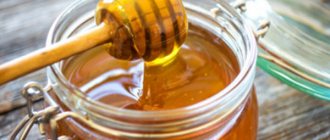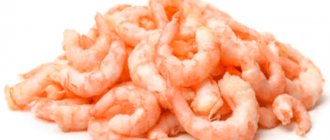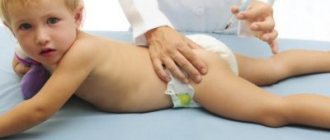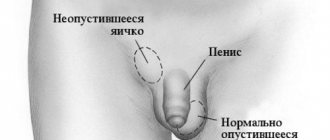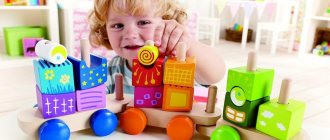Composition and influence of coffee beans
- Thanks to the caffeine contained in the beans, the drink acquires an invigorating taste. Also present are proteins, fiber, carbohydrates, minerals and tannins.
- Coffee beans contain many substances. It is known how about 50% of them affect the human body, the rest still remain unexplored.
- The caffeine content in Arabica beans is from seven tenths to two and a half percent, in Robusta - from one and a half to three point two percent.
- Fiber is 10 times and tannins are 3 times higher than the caffeine content in coffee.
- Green beans contain a lower percentage of caffeine. When roasting, this figure increases, the increase can reach up to 20%.
Let's look at the effect an invigorating drink has on a person.
- Suppresses the influence of neurohormones that cause drowsiness and relaxation. That is why after drinking such a drink, perception increases and the speed of reactions improves.
- It affects the secretion of adrenaline, as a result of which the individual who drinks coffee feels energy and vigor.
- Transports glucose into the bloodstream, which also affects the increase in activity and the appearance of strength.
- It affects the increase in dopamine levels, resulting in a good mood.
At what age can you drink coffee?
Therefore, it is better if parents themselves gradually accustom their child to caffeine. To determine at what age you can drink coffee, even in tiny quantities, you need to take into account one physiological feature: up to the age of 6–7 years, a child’s gastrointestinal tract is very vulnerable. Before this age, children should not be given any products containing caffeine. For children under 7 years old who want to drink coffee in imitation of their parents, it is better to offer a drink made from chicory.
Scientists believe that after 7 years, the maximum permissible daily intake of caffeine for a child is about 50 mg. As can be seen from the table, without exceeding the dose, you can treat a schoolchild to 50 g of chocolate or a cup of black tea. But if you add 10–20 ml of black coffee to a cup of milk, the caffeine content in the drink will not exceed the norm.
Negative effects on the child's body
Coffee has a negative effect on a child's body
- Caffeine has negative effects on the developing nervous system. The baby becomes overexcited.
- Adrenaline increases your heart rate, which can disrupt your heart rhythms. And this is dangerous for the child.
- Caffeine increases blood glucose levels. This phenomenon can lead to a malfunction of the pancreas.
- Blood pressure may increase. This phenomenon will be especially dangerous for children suffering from hypertension.
- Disturbance in proper sleep is provoked. The child may experience insomnia.
- It has a pronounced diuretic effect, resulting in excessive leaching of calcium, which is so necessary for the normal development and growth of bone tissue. The lack of this mineral leads to inhibition in the development of teeth, worsens their condition, hair loss begins, and brittle nails are observed. Caffeine also helps flush magnesium and potassium from the body.
- It can cause addiction because it affects the pleasure center. After drinking a cup of drink, the baby feels increased activity, both physical and mental. However, this is followed by depression, capricious behavior, absent-mindedness, possible hysteria, and increased tearfulness. In a couple of hours, a child wastes the strength given to him by his body for the day. If a teenager develops an addiction and is denied access to a desired drink, it is possible that depression will develop, a feeling of depression and irritability may appear. In such a situation, the child may resort to alternative addictions: start smoking or drinking alcoholic beverages.
Coffee consumed in early childhood can cause serious problems with the kidneys, heart, stomach and nervous system.
Why children shouldn't drink coffee
Many parents believe that coffee does more harm to the child than good, and pediatricians agree with them on this - their opinions on this issue coincide and voice a number of arguments in support of their position.
Giving coffee to children is contraindicated for the following reasons:
- First of all, the caffeine contained in this drink has too strong an effect on the not yet formed nervous system, stimulating it and creating additional stress. Due to frequent consumption of coffee, the child experiences hyperactivity and sudden attacks of loss of strength, as well as an inability to concentrate attention on one task for a long time. This condition should not go unnoticed by parents, and if negative symptoms show themselves often, it is worth visiting a doctor, having previously eliminated all irritating factors from the diet.
- Excessive consumption has a negative effect on hormonal levels - for an adult this effect has positive qualities, but for a child it is prohibited. If a baby is addicted to a coffee drink, physiological abnormalities show themselves, for example, in the child’s sexual development, sleep patterns are disrupted and puts excessive stress on the body.
- The adrenaline produced in the body under the influence of coffee not only gives a surge of strength and a charge of vivacity, but also increases the number of heart contractions, thereby disrupting the heart rhythm, and this is very harmful for the child.
- Under the influence on the child’s body, the level of sugar in the blood increases due to the production of pancreatic glucose. This may cause the development of an acquired form of diabetes.
- Caffeine has a pronounced diuretic effect and this provokes excessive leaching of calcium from the body, which is so necessary for growing bones and teeth, negatively affecting their condition. In addition to calcium, the drink itself provokes the leaching of potassium, magnesium, and other useful components, which negatively affects the general condition of the growing body.
- Due to the fact that it is impossible to calculate the optimal dose of coffee for a child, an insurmountable dependence on this energy and stimulating drink arises. The ability of coffee to have a stimulating effect on the nerve centers in the cerebral cortex provokes such dependence on the drink. The brain's need to constantly satisfy the need to stimulate the nervous system is the main danger. The body gets used to constantly feeling a surge of vigor and strength - this provokes the need for daily servings of a coffee drink. If a child does not receive such a portion of his charge, the body feels a loss of strength and depression, and this is a direct confirmation of coffee addiction.
These are the main points why coffee should not be given to children.
Contraindications
For children who have trouble sleeping, coffee is strictly contraindicated.
Parents should know that if you have certain diseases, drinking coffee is strictly prohibited. These include:
- diseases of the cardiovascular system, in particular hypertension;
- enuresis;
- nervous system disorder;
- diseases of the gastrointestinal tract;
- tuberculosis;
- kidney pathologies;
- eye diseases;
- sleep problems.
Products containing caffeine
Parents often give coffee to their children, believing that only it contains caffeine, which has a beneficial effect on the body in small dosages. However, it is not. A similar element is also present in:
- green tea;
- cocoa;
- hot chocolate;
- carbonated drink Coca Cola;
- chocolate bar;
- mate;
- industrial energy drinks.
Be sure to read: What is green coffee and is it really effective for weight loss?
If your baby consumes large quantities of any of the listed products, you need to think about whether it is worth adding coffee to the diet, because caffeine enters the body from other dishes.
Acceptable age
Let's figure out at what age drinking coffee is permissible for a child.
- Some parents, from the age of five, offer their child a diluted drink with milk. At the same time, they make a mistake, because the baby’s nervous system is not strong enough, stressful situations often appear in the child’s life, kindergarten, elementary school, a new team. A child may be drawn to this drink himself, watching how adults drink it. Then it is better to offer him an alternative option: cocoa with milk or hot chocolate.
- From eleven to fourteen years old, children also experience a lot of stress, and hormonal changes begin. If a child drinks coffee, he receives additional stress on the nervous system and heart. For the body of a teenager who is under constant stress, balancing drinks are better suited, namely: black tea, milk, cocoa, chamomile tea.
- According to doctors, the most appropriate age is from 14 years. The body manages to adapt to the transition period, and the nervous system stabilizes. But it is also worth considering that the nervous system may still be at the stage of development, and the heart continues to be subject to additional stress. If a teenager is not eager to try coffee, then you should not remind him of the existence of this drink. His acquaintance with green tea will be much more useful.
When your little one drinks coffee for the first time, observe how his body reacts. If an undesirable phenomenon occurs, the child may have an individual intolerance or have some hidden diseases.
Coffee with milk: benefits and harm for children
According to pediatricians, a child over 12 years old can drink coffee diluted with milk. This method of preparing the drink makes it weak and healthy. The tonic and invigorating effects are preserved, thanks to which the child will be able to concentrate and better perceive surrounding information. Doctors recommend that children drink coffee with milk in the morning so as not to provoke insomnia. Until the age of 14, the nervous system develops most actively, so excessive stimulation in the afternoon and evening will lead to rapid exhaustion.
If your baby accidentally drinks coffee
If the child takes one sip, most likely no serious consequences are expected. If he drinks coffee in large quantities, the following symptoms may occur:
- nausea, vomiting;
- hyperactivity;
- increased anxiety;
- sleep problems;
- arrhythmia;
- allergic spots on the skin;
- trembling fingers;
- paleness of the face or redness;
- headache;
- tachycardia;
- Convulsions cannot be ruled out.
If the symptoms are mild, then parents will be able to cope on their own, just provide fresh air access to the room and calm the child. If serious manifestations are observed, then you need to call a doctor or an ambulance.
Can caffeine affect fertility?
Experts who study the problem of infertility are confident that if you have problems with fertility, you need to be careful when consuming caffeine. Animal studies show that the substance may interfere with the growth of reproductive cells in women and men.
Most experts are convinced that moderate consumption of caffeine-containing products does not cause fertility problems. Up to 300 mg of caffeine per day is considered normal, but other studies show that even 200 mg of the substance can increase the risk of miscarriage.
A study was conducted in one of the US universities with the participation of 9 thousand women. Doctors studied the effect of caffeine on fertility, and the results were shocking: more than 4 cups of coffee per day reduce the chances of successful conception by 25%.
Under the influence of caffeine, fertility is reduced because the substance worsens the tone of the fallopian tubes, through which the egg passes from the ovaries to the uterus. With weak contraction of the muscles of the fallopian tubes, the egg cannot move. Practice proves research results: women who abuse coffee find it more difficult to get pregnant.
Any specialist will tell you that it is not recommended to consume caffeine when trying to conceive. Many studies show that 10 cups of strong tea can reduce the chance of pregnancy by 25%. This applies to both natural conception and artificial insemination.
In addition, caffeine can affect the activity of the fallopian tubes, change hormonal levels, interfere with normal ovulation and complicate the process of fusion of germ cells. According to some studies, caffeine can negatively affect sperm quality, in particular spermatogenesis.
When planning a pregnancy, doctors recommend avoiding caffeine products or limiting their consumption as much as possible. Moderate doses of caffeine can be useful in certain conditions, but when planning pregnancy, it is better for a woman to give up coffee, and a man should choose only natural varieties. In any case, specific recommendations on diet in preparation for conception should be given by your attending physician.
Rules of use
- Pour into a cup as little ground grains as possible to the usual volume of water.
- If you are interested in the question of what kind of coffee you can give your child when starting his acquaintance with this drink, the answer is diluted with milk.
- It is unacceptable to start your acquaintance with instant coffee. It only brings harm to adults too. Unlike a grain drink, it lacks the vitamins and acids necessary for the body, but contains undesirable ingredients.
- Do not give coffee in large quantities.
- It is unacceptable to drink coffee on an empty stomach. It is better to take it in the morning, but after taking a full breakfast. It is unacceptable to drink it before bed.
- It is not recommended for children to make coffee from green beans, as such a drink has an even greater effect on the nervous system.
- Introduction to coffee should be gradual; the child’s body should have time to return to normal. Thus, a break of a day is mandatory, preferably three.
- It is also better to exclude decaffeinated coffee, because it can cause undesirable reactions in the child’s body, from allergies to problems with the gastrointestinal tract.
- Coffee sticks are actually a fairly low quality caffeine powder. This drink contains preservatives and dyes, and a small percentage of tonic substances. If you consume this “coffee” regularly, you will experience problems with your teeth and stomach.
To this day, I don’t like coffee, I don’t feel like drinking it. And my son, who is now 13 years old, has long been interested in this drink. I am categorically against him drinking it. I always gave my son cocoa with milk, passing it off as coffee. When the son grew up, he learned the truth, but still continues to be content with cocoa.
Now you know at what age you are allowed to drink coffee. As you can see, there is no need to rush to introduce your child to an invigorating drink. Parents should remember the negative effect coffee can have on a baby’s growing body. We should not forget that for some children it is generally contraindicated due to the presence of certain diseases; drinking coffee can have serious consequences for their health.
Possible consequences after drinking coffee
Even a weak drink can provoke a number of unpleasant consequences. The child may feel:
- Nausea;
- Rapid breathing;
- Headache;
- Vomiting;
- Tremor in the body;
- Temperature changes.
All this can happen unexpectedly for parents. Therefore, it is necessary to prepare for such a situation and, if you have one of the above symptoms, immediately consult a doctor.
If symptoms occur, we can talk about individual intolerance to the coffee drink or disruption of the gastrointestinal tract.
It is not recommended to give coffee to children in the morning, especially on an empty stomach. Also, doctors do not recommend allowing your child to drink coffee after a heavy lunch or dinner.
The second morning snack is the ideal time to take a coffee-containing drink. Giving coffee in the late afternoon is not worth it, because the baby may suffer from insomnia or even disrupt his usual sleep pattern.
Negative effects of caffeine on children's bodies
The harm of caffeine to a child’s body is quite high; it affects several systems at once.
- First of all, coffee negatively affects the child’s nervous system. Due to caffeine consumption, children often experience increased activity followed by a loss of energy. But very often parents confuse the effects of caffeine with completely different symptoms. For example, a child may be hyperactive or absent-minded. If the child’s condition causes serious concern, it is better to consult a doctor for examination. But first of all, you should take care of your baby’s diet. Not only coffee should be excluded from it, but also frequent consumption of carbonated drinks, and energy drinks, which teenagers like so much, should be completely prohibited.
- Coffee is addictive. This is due to the fact that the drink actively stimulates the pleasure centers of the brain. That is why, in the case of frequent consumption of coffee, a person experiences a surge of strength, emotional uplift and vigor. Children accustomed to coffee, having excluded coffee from their diet, are able to feel a strong desire for a new dose of caffeine. Without receiving one, they can become depressed and feel depressed, depressed mood, loss of strength, irritability, and fatigue appear. Very often, teenagers try to replace the missing coffee with another and more dangerous addiction, such as smoking or drinking low-alcohol drinks.
- In children, as well as in adolescents, coffee is also addictive. After drinking the drink, the child may feel cheerfulness, increased mental and physical activity. The danger lies in the fact that after such a surge of strength, relaxation occurs in the nervous system and the child’s entire body, which can lead to: hysteria, depression, tearfulness and capriciousness, absent-mindedness, hysterical laughter. Thus, a child spends the supply of vitality given for one day in a few hours. Coffee activates it and makes it work extra energetically, which leads to loss of strength.
- Coffee is fraught with another unpleasant fact: the drink removes calcium, and as you know, calcium is very important for the maturing body. This threatens problems in bone formation and deterioration of heart function.
- Coffee affects the functioning of the heart, increasing the frequency of contractions, which is already higher in children than in adults. Because of this, drinking coffee at an early age can negatively affect the cardiovascular system.
- A child may suffer from hormonal problems during puberty. The insidious drink makes its contribution here too. During growing up and the formation of the reproductive system, a teenager may experience physiological abnormalities in the form of memory impairment and increased nervous excitability.
- Coffee is also distinguished by its diuretic properties. This can also affect the child’s health, because minerals - zinc, calcium, phosphorus - are washed out along with urine during frequent urination.
Beneficial properties of coffee
Many nutritionists claim that coffee is a very healthy drink, in reasonable quantities, of course. And its beneficial properties are cited as proof:
- Regular consumption of the drink helps reduce the risk of type II diabetes;
- reduces the risk of cancer (in women – mammary glands, in men – prostate);
- reduces the frequency of constipation;
- has a beneficial effect on hypotensive patients, increasing blood pressure;
- enhances the effect of certain medications, which allows for faster pain relief, for example, with migraines.
And finally, there is a version that those who regularly drink coffee are less susceptible to depression and live longer.
Harmful drink for a child
A child’s body differs from an adult’s not only in physiology. The main difference is that it has not yet matured and continues to develop according to its own special scenario. So at what age can you drink coffee so as not to interfere with this development? First you need to evaluate the benefits and harms of this drink.
You should not give coffee to a child if he has enuresis, kidney disease, liver disease, or gastrointestinal tract disease.
The following properties of a drink made from natural ground grains have been well studied:
- stimulation of the nervous system;
- increasing the speed of metabolic processes;
- acceleration of thought processes;
- increasing the degree of concentration;
- stimulation of the excretory system (diuretic effect);
- acceleration of heart function;
- increased blood pressure, etc.
A healthy person feels a surge of strength and vigor from a cup of drink, he is able to concentrate on work, concentrate, and drive away sleep and fatigue. What can happen to a child, especially preschool and primary school age? Coffee is a stimulant of many internal processes, and in a child their course is much more intense than in an adult.
Therefore, increasing the functioning of the nervous system, increasing motor activity and performance can have negative consequences, which are expressed in the following:
- overexcitation of the nervous system, which can provoke hyperactivity, sleep problems, anger, and reduce stress resistance;
- removal of useful substances from the body due to the diuretic effect. Loss of calcium is especially dangerous;
- addiction, which in the future can lead to excessive consumption of coffee, and this is harmful to health;
- stimulation of the heart, which can cause increased heart rate and chest pain.
This is why children should not drink coffee. But children are different too. There are phlegmatic people, there are choleric people, there are those who suffer from dystonia and low blood pressure from early childhood. In this case, it is not prohibited to give coffee to children. Such a child will be more active, better cope with fatigue and lethargy, and stimulate the functioning of the cardiovascular system. His mood will lift. But children should not often be given coffee.
Who should not drink: contraindications
Drinking the drink is not recommended if:
- High blood pressure.
- Peptic ulcer disease.
- Liver diseases.
- Kidney diseases.
- Enuresis.
- Tuberculosis.
- Vision problems.
- Insomnia.
